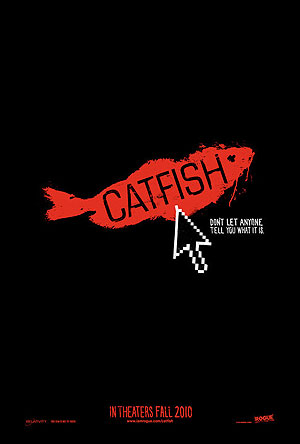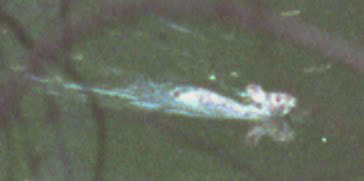Fabulously Frustrating: Gay Stereotypes On TV
Published on January 30th, 2012 in: Issues, LGBTQ, Oh No You Didn't, TV |By Maureen
It’s 2012. Many states, including my home state of New York, have legalized same-sex marriage. So why does it seem like every portrayal of a gay person or a gay relationship on TV right now seems to fit into one of two main stereotypes? I feel like I’m taking crazy pills every time a major movement in the field of equal rights happens, and no one seems to tell the television universe.
(more…)
Scandal In The 21st Century: The Different Faces Of Irene Adler
Published on January 30th, 2012 in: Books, Feminism, Issues, LGBTQ, Movies, Oh No You Didn't, TV |By Lisa Anderson
To Sherlock Holmes, she is always the woman. I have seldom heard him mention her under any other name. In his eyes she eclipses and predominates the whole of her sex. It’s not that he felt any emotion akin to love for Irene Adler. All emotions, and that one in particular, were abhorrent to his cold, precise, but admirably balanced mind . . . He never spoke of the softer passions, save with a gibe and a sneer . . . And yet there was but one woman to him, and that woman was the late Irene Adler, of dubious and questionable memory.
—”A Scandal in Bohemia,” by Sir Arthur Conan Doyle
In recent years, two new versions of the stories of Sherlock Holmes have captivated viewing audiences. One is the film version starring Robert Downey, Jr. The other is the BBC Television version with Benedict Cumberbatch as the lead. Both versions make good use of characters that have either been portrayed very differently or not used as extensively in other incarnations of Holmes stories. For example, both Jude Law and Martin Freeman portray John Watson as a much better sidekick than did Nigel Bruce and others. Mycroft Holmes, Sherlock’s smarter older brother, gets screen time and importance in both the movies and the television show. However, none of Arthur Conan Doyle’s characters has seen their stock increase more in these retellings than Irene Adler. SPOILERS BEHIND THE CUT!
(more…)
Pierre Trudeau: Do the Fuddle Duddle!
Published on January 30th, 2012 in: Canadian Content, Issues, Oh No You Didn't |By Emily Carney
In December 2011, Canadian Liberal MP Justin Trudeau threw some cusses in the House of Commons, calling Environment Minister Peter Kent “a piece of shit.” This prompted some Conservative MPs to yell back at Trudeau in protest.

Personally, I have no idea if Mr. Kent is a piece of shit; to Trudeau’s credit, he did apologize for his gaffe and for using unparliamentary language. I also have zero perspective about the ins and outs of Canada’s House of Commons, not living in or being from Canada. I had no idea that the Canadian House of Commons was this insane, given Canada’s stateside reputation as being a nation made of kittens, poutine, and toques.
(more…)
Catfish: Beyond Real And Beyond Fake
Published on January 30th, 2012 in: Documentaries, Found Footage, Issues, Media, Movie Reviews, Movies, Oh No You Didn't, The Internets |Living on the Internet means that you often have to dodge spoilers. Luckily, the Internet is also so crammed with information there are enough things with which to distract yourself.

Such was the case with Catfish, a 2010 documentary that caught my attention via its unsettling trailer, which seemed like a faux documentary horror movie along the lines of The Blair Witch Project or the Paranormal Activity series. It was clear that an appreciation of the film was a case of “less is more,” so I added it to my DVD queue and successfully avoided spoilers for almost two years.
When I finally watched Catfish earlier this week, my stomach was in knots for at least 45 minutes until the movie completely . . . I’ll stop here because if you haven’t seen Catfish, you should watch it, and you should watch it not knowing any more than I did.
Catfish is a remarkable film and one that is thrilling, upsetting, disturbing, and moving. It makes incredible use of technology in its presentation of the Internet persona through GPS, Google, YouTube, Facebook, and all the other forms of social and searchable media we use every day. Such technology is so easily accessible and so widely used that it becomes a part of our lives that we take for granted, even though we assign it so much importance. We take all the veracity it reveals to us on faith.
As far as Internet personas, it’s common knowledge that we want to show everyone the best of ourselves, even if that means we make ourselves seem better than we are. But there is always a gap between our “real” selves and our Internet selves.
The width of this gap will likely determine how you treat your Internet friends. Do you treat them the same as your “real life” friends? Better? Worse? Do you subscribe to the “It’s just the Internet” theory to make yourself feel better about what you see and read there? The width of this gap will also determine how much Internet interactions affect you when you’re not on the Internet.
These were the ideas swirling around in my head right after I watched Catfish and right before I started looking up reviews online. Then, much like the film itself, everything changed. SPOILERS BEHIND THE CUT!
Forbidden Fruit: Banned, Censored, and Challenged Books from Dante to Harry Potter
Published on January 30th, 2012 in: Book Reviews, Books, Canadian Content, Issues, Oh No You Didn't |When you think of banned books, you might think of Henry Miler’s Tropic of Cancer (1934), J.D. Salinger’s The Catcher In The Rye (1951), Kurt Vonnegut’s Slaughterhouse Five (1969), or Margaret Atwood’s The Handmaid’s Tale (1985). However, the practice of censorship and banning books reaches back to Socrates and the fifth century BCE. As Pearce J. Carefoote’s Forbidden Fruit: Banned, Censored, and Challenged Books from Dante to Harry Potter explains, the practice did not end when the Middle Ages gave way to the Renaissance.
Jimmy Carter and The Rabbit Incident
Published on December 5th, 2011 in: Comedy, Dancing Ourselves Into The Tomb, Editorial, Issues, Media |Even at the best of times, it’s no picnic being the President of the United States. Being President in the 1970s was practically impossible.
Nixon inherited the bloody Vietnam conflict and struggled to govern a deeply divided nation through the oil crisis, economic stagnation, and that little Watergate thing. Athletic, competent Gerald Ford started out his brief presidency by pardoning Nixon for his crimes, heroically sparing the country an even more divisive trial; for his trouble, he got not one but two assassination attempts, and Chevy Chase turned him into a bumbling national joke. But nothing compares to the travails of our Thirty-ninth President, James Earl Carter. Double digit inflation. A bloated and unresponsive federal government. The collapse of Iran, the rise of radical Islam, and the intractable hostage crisis.
And the rabbits. The relentless, murderous rabbits.
They Came From The ’70s: Five Faves I Still Enjoy
Published on December 5th, 2011 in: Dancing Ourselves Into The Tomb, Issues, Listicles, Movies, Music, Staff Picks, Top Five Lists |By Julie Finley
Although for some of these artists, fame came before or after the 1970s, I am solely focusing on their 1970s stuff.
(more…)
Top Five 1970s Films Directed by Women
Published on December 5th, 2011 in: Dancing Ourselves Into The Tomb, Documentaries, Feminism, Issues, Listicles, Movies, Staff Picks, Top Five Lists |By Chelsea Spear
If your knowledge of the American New Wave begins and ends with the studio films of the era and Peter Biskind’s Easy Riders, Raging Bulls, you may regard 1970s Hollywood as a roiling cauldron of testosterone. The pictures of the day may have featured more complex female protagonists, and may have ushered in an era of unconventional actresses like Shelley Duvall, Ellyn Burstyn, and Barbara Streisand. However, the exploits of Altman, Bogdanovich, Hopper, and Scorsese and their second-string peers left little room for emerging distaff talent.
As any good artist does, however, the female directors of the 1970s found a way around the system and were able to make feature films. Many of these saw distribution at mainstream houses, while others languished, undiscovered until recently. Here are five features helmed by intrepid lady lensers during the Easy Riders/Raging Bulls era.
(more…)
Five 1970s Ads That Make Me Facepalm
Published on December 5th, 2011 in: Dancing Ourselves Into The Tomb, Issues, Listicles, Media, Staff Picks, Top Five Lists |By Emily Carney
Apparently in the 1970s, taste and class were elements not yet added to advertising pitches. I have several interesting books related to 1970s ads including some truly classy ones. I actually bought these when I briefly studied ad writing in college. I am just going to provide a brief capsule summary of “the best” and I will allow you, dear reader, to write the rest of the scenarios depicted in your skull. Good luck and have fun.
(more…)
Five Ubiquitous Scents From The Seventies
Published on December 5th, 2011 in: Dancing Ourselves Into The Tomb, Issues, Staff Picks, Top Five Lists |By Emily Carney
I was born in 1978, at the tail-end of the 1970s. Most of my formative memories stem from the early 1980s, which were basically an extension of the 1970s well into 1984 (at least in Florida—culturally we got it together kind of late, save for the space shuttle maybe). Many of the most ubiquitous scents from the 1970s still wafted around into the 1980s and beyond. Hell, you can probably walk into any Bealls Outlet store and find these scents on sale. Without further ado, here are some smells you couldn’t escape during the heady times of the late 1970s and early 1980s.
(more…)
